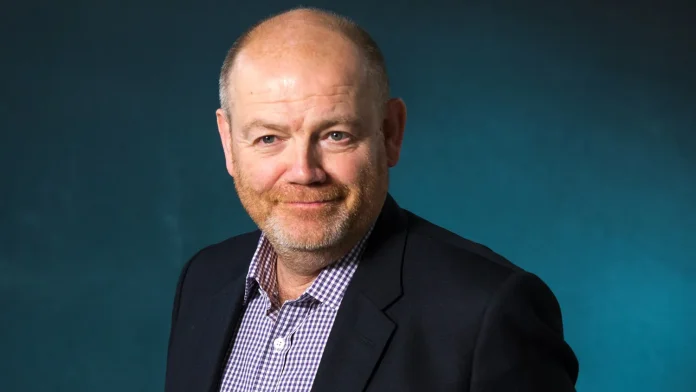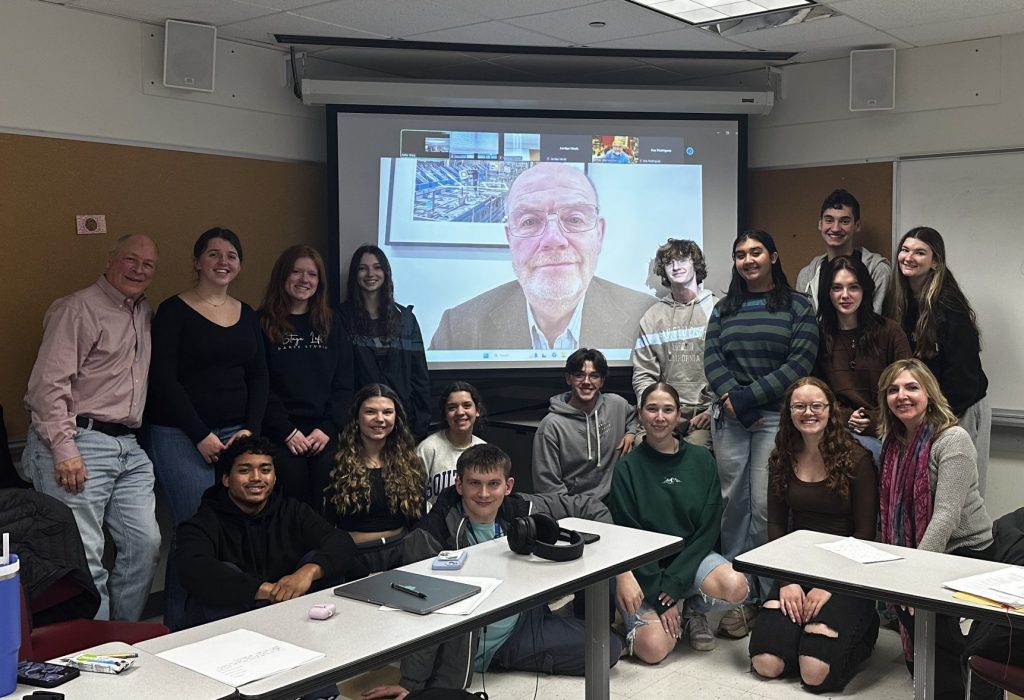Sir Mark Thompson — a renowned journalist and media executive — virtually met with students from HON 150 (Intro to Critical Inquiry) on Tuesday, Dec. 10 for an insightful discussion on his storied career and media literacy.
Thompson, the former director-general of the BBC (8 years), CEO and president of The New York Times Company (8 years), and current CEO of CNN since August 2023, shared perspectives from his 2017 book, Enough Said: What’s Gone Wrong in the Language of Politics.
“Be like a field anthropologist of rhetoric,” Thompson told the students. “Observe and collect examples of political techniques and think critically about their intent and effectiveness.”
The course, taught by professors Suzanne LaCroix and Mike Shea, includes Enough Said in its curriculum, offering students a deep dive into the intersection of media, politics, and language.
The book examines how the language of politics and public discourse has shifted in recent decades, exploring the erosion of trust in political speech and the rise of populism, polarization, and soundbite-driven communication. Throughout the session, Thompson encouraged students to critically analyze political messaging, adapt to new communication platforms, and embrace the power of observation to better understand the strategies shaping public discourse.
“Just keep your eyes and ears open,” offered Thompson. “Think about how political techniques work, what they aim to achieve, and whether they’re based on facts or trying to pull the wool over your eyes.”
Around 2019, Enough Said was introduced into the curriculum. Following its inclusion, a student’s end-of-semester paper highlighted the profound impact the book had on her. This feedback was subsequently relayed to Thompson, initiating an ongoing dialogue with Honors College faculty that has persisted to this day.
“We focused on this book because it was a labor of love for [Thompson],” said Mike Shea, professor of English. “When you ask someone to spend time talking about something they feel especially passionate about, they often want to make the time.”



